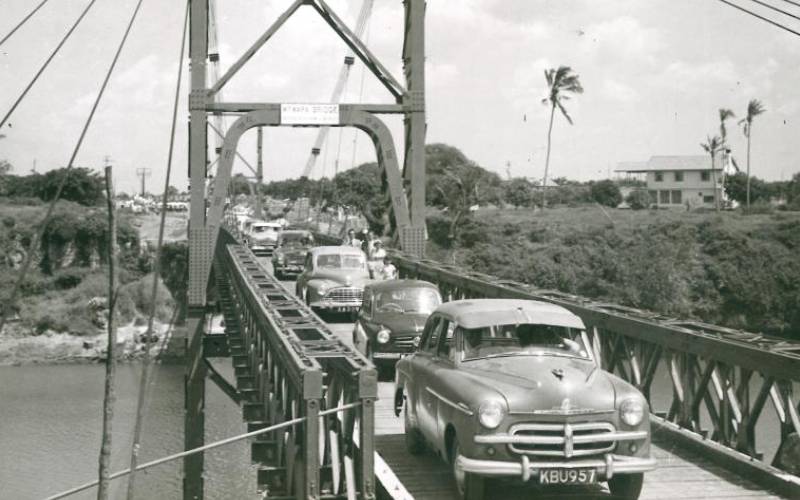×
The Standard e-Paper
Join Thousands Daily

Cars crossing Mtwapa bridge at the Mtwapa Creek, Mombasa, June 24, 1958. [File, Standard]
Kenyans have in the last few days lamented on skyrocketing fuel prices. Online jokes riding on the issue keep surfacing by the day.